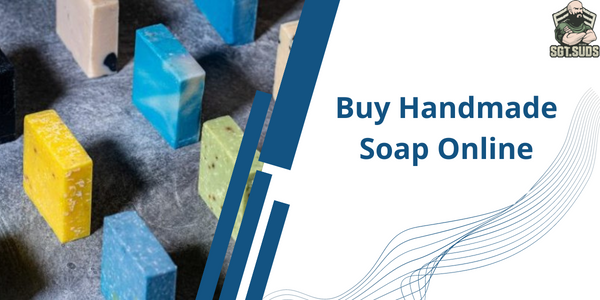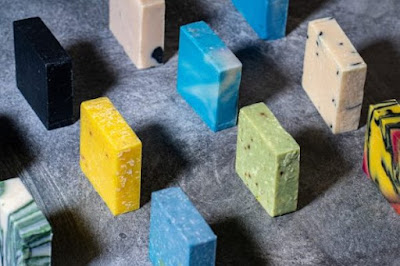Close Air Handmade Soap Purchase Online
Close Air Handmade Soap Purchase Online Our soap is referred to as "natural" because all of the ingredients used in its making are natural. What is natural to us? It is a common-sense definition.
Artificial manipulation of a substance in a laboratory (i.e. compounds that are made in ways that are not found in nature) can lead to it being incompatible with soaps. These ingredients are found in many 'natural' soaps, but not ours. It is not possible to extract it directly from the plant, or if it isn't a living plant, such as carrot powder. If it hasn't been extracted directly from the plant (or isn't still a plant - e.g. seaweed and carrot powder), it won't make it in our soaps. We are used to seeing (and eating!) all kinds of oils every day. There are many oils, including olive oil.
Handmade soap made with natural ingredients has many benefits
The skin is often the first to absorb chemicals and toxins from commercial products. Many ingredients found in these products are obscured in small print and hard to read on small labels. Handwashing should be gentle and soothing. Many commercial soaps can have harsh ingredients or negative effects on the environment.
Q- What should you care about when you buy soap?
Ans- Soap is a term that refers to all types of skin cleansers. Some soaps are deodorizing, while others are antimicrobial, antiaging and moisturising. Most people use soap at least once a day. It is a primary tool in the prevention of certain bacterial or viral diseases.
Q- Is your soap truly natural? Coconut Milk is being prepared for soap making?
Ans -This is what you mean: Is it natural? Does it grow on trees? It is not, therefore. You mean, is it made only from natural ingredients? In other words, from plants, minerals or animal byproducts? Yes.
Q: How come the liquid that I eat with my salad has become solid and can I wash it?
Ans- As the majority of us aren't trained chemists, this can be a hard one to get your head around.In order for liquid olive oil to become solid and, importantly, something we can wash with, then it needs to undergo a change known as saponification.Saponification is the process by which oils (or fats and butters) become soap.
Q- How can you saponify olive oils? Well, you will need an alkali (or 'lye'). Is lye necessary to make soaps?
Ans- We do. Otherwise, the olive oil that we sent in the mail wouldn't be able to clean you. It would be just olive oil. It would still be liquid in our case. This is not very useful - and messy for the postal worker - since our soaps come in non-watertight, biodegradable packaging instead of bottles. ).
Q -Take a look at our ingredients.
Ans - I'm sure that you have noticed that we list our ingredients in what appears to be weird Latin, just like any other cosmetics company. We don't like it, but we do think it's not very friendly. That's why we offer a plain English version on our website as well as packaging.
Q- What is this to do with lye and why do we do it?
Ans-No Lye in our Formal Ingredient Listing = No Lye in Our Soap Bars Natural soap barsBy law, we must list all ingredients in INCI format (International Nomenclature of Cosmetic Ingredients) so they can be easily understood around the globe. We would be violating the law if there was lye in soap, but we didn't include it in our ingredients.
tags - Close Air Handmade Soap,



Comments
Post a Comment